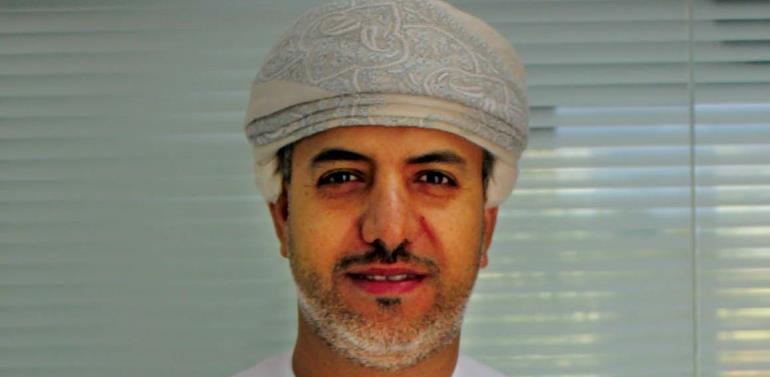Oil & Gas
Championing environmental excellence: Hamed Al Rumhi, Orpic

Orpic Oman has reduced flaring from its plants by over 60 per cent in the last five years, informed Hamed Al Rumhi, Head-EIP, Orpic Oman. Excerpts from an interview with him.
What is Orpic’s overall strategy to meet the challenges related to climate change, environmental protection and sustainable development?
We are following the international best practices as well as our local stipulated legislations. In compliance to these legislations, Orpic Oman is reporting the Green House Gas (GHG) emissions for all of its operations. We are also working to develop a plan in order to phase out the ozone depletion substances (HCFCs) by 2020. In addition, Orpic have phased out all high Ozone depleting substances such as halon gas (CFCs) from our facilities. Moreover, fuel integration across our plants was implemented. This will promote greenhouse gas reduction as well as reduction in flaring. It has already been implemented between Sohar Refinery and Aromatics Plant.
One of the other strategies is to reduce fugitive emissions from our plants by using a regular Leak Detection & Repair (LDAR) programme. This programme started in 2012 by implementing a pilot project in Sohar Refinery and subsequently, a complete comprehensive programme in 2013-2015 across all our plants – in Sohar Complex and Mina Al Fahal (MAF). Going forward, we will continue using these best practices in the future as well.
What challenges are you facing in reducing your waste and emissions?
As an oil & gas industry, Orpic Oman is operating two large complex facilities — refineries & petrochemical plants and product storage facilities. Therefore, we have a tremendous industrial waste generation from all these facilities. The challenge we are facing is lack of eco-friendly and/ or reusable, treatment in the region to accommodate all industrial waste. This is one of the challenges in terms of waste management. The other challenge could be referred to the continuous change of crude quality since the commissioning of the refinery in 2006. The crude quality becomes heavier over the years due to new discoveries in Oman. This impacts our operations in the generation of waste as well as emissions to the atmosphere.
Tell us about the key objectives, programmes and results achieved on the environment improvement front in your operations as well as the development of new projects.
Our key objective is to continue reducing flaring from our plants by implementing strict targets. Since 2011, our flaring has reduced by more than 60 per cent. Another key achievement is the improvement of Sohar Refinery treated wastewater quality to more than 90 per cent. The results were achieved due to a number of improvement projects carried out at the wastewater treatment plant. The other milestone is that we have reduced community complaints by more than 70 per cent in 2015 compared to the past few years. Another achievement is the Volatile Organic Compounds (VOC) reduction by almost 60 per cent from implementing LDAR programme.
What are the new technologies and best practices you have introduced or planning to introduce in Oman on environment protection front?
One of the best practices Orpic Oman have introduced over the last few years is the monitoring of odours through e-noses. The same system has already been implemented in one of the big industries in Rotterdam in Europe. This is an effective tool to monitor odour emissions as well as giving feedback to the complainants about Orpic operations. The other best practice is implementing the best available technologies in reducing emissions from different facilities eg. waste water treatment plants, tanks and other facilities by using effective absorbers and odour abatement project which has been recently commissioned. These equipment will significantly reduce the amount of VOCs emitted to the air. Three scrubbers in series were introduced to remove, Ammonia (NH3), Hydrogen Sulfide (H2S) in addition to activated carbon filters in order to eliminate VOC’s from WWT.

Another technique to be introduced soon is the real time predictive air quality model for Sohar which will support the optimization of operational activities, enhance Orpic’s community liaison and engagement with the affected communities and to provide a comprehensive regulatory compliance tool for all air emissions from Orpic facilities in Sohar.
-

 Banking & Finance2 months ago
Banking & Finance2 months agoOman Oil Marketing Company Concludes Its Annual Health, Safety, Environment, and Quality Week, Reaffirming People and Safety as a Top Priority
-

 News2 months ago
News2 months agoJamal Ahmed Al Harthy Honoured as ‘Pioneer in Youth Empowerment through Education and Sport’ at CSR Summit & Awards 2025
-

 OER Magazines2 months ago
OER Magazines2 months agoOER, December 2025
-

 News2 months ago
News2 months agoAI Security Conference 2025 Hosted by Securado Highlights the Changing Cybersecurity Landscape
-

 Insurance1 month ago
Insurance1 month agoSupporting Community Wellness: Liva Insurance Sponsors Muscat Marathon 2026 with Free Health Checkups
-

 Interviews1 month ago
Interviews1 month agoEXCLUSIVE INTERVIEW: TLS Rebranding Marks Strategic Leap Toward Innovation, Sustainability & Growth
-

 Insurance4 weeks ago
Insurance4 weeks agoLiva Insurance Supports Community Wellness Through “Experience Oman – Muscat Marathon 2026”
-

 Banking & Finance4 weeks ago
Banking & Finance4 weeks agoA New Platform for SME Growth: Oman Arab Bank Unveils Tumouhi































You must be logged in to post a comment Login